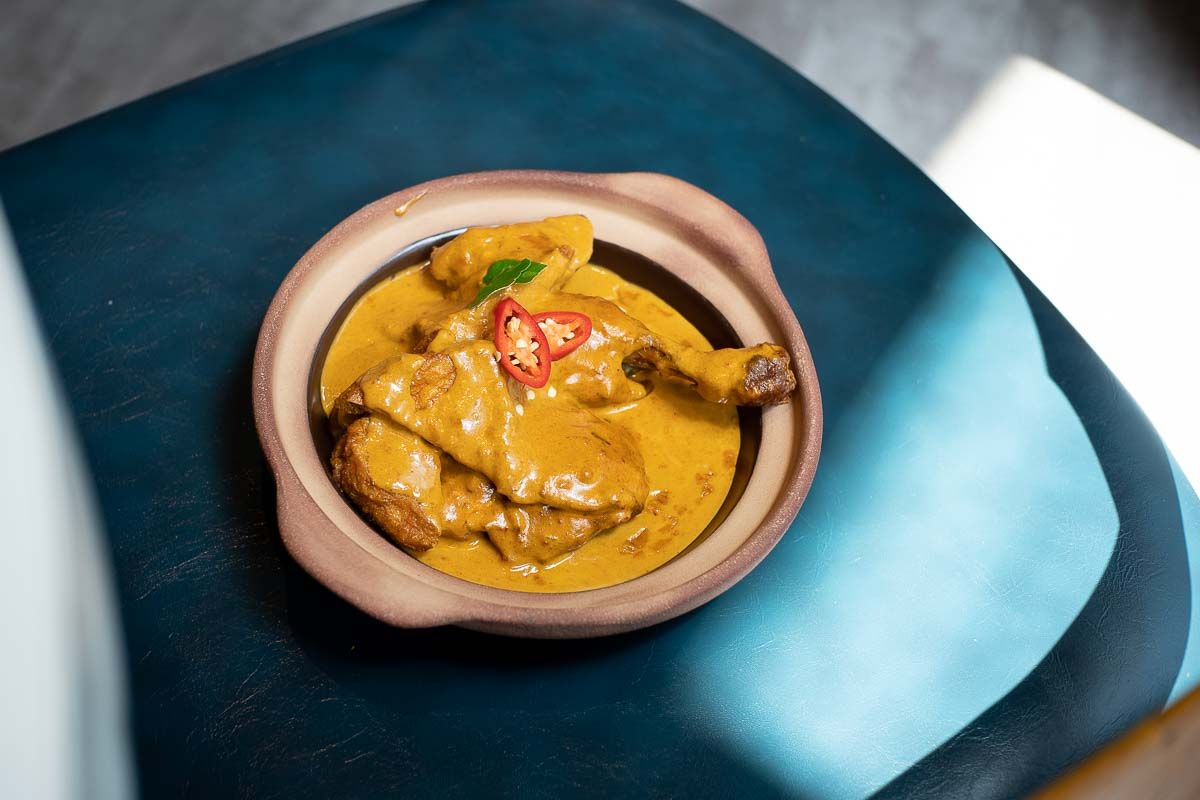Top Image: Zat Astha
As a locally raised foreigner, I grew up seeing the bastardization of Italian food all around me. Beyond the tragedies that are Pastamania and Saizeriya, I can never forget the days I encountered fish curry gelato or bubble tea pizza—the latter of which looks like a handful of rabbit turds layered on a bed of curdled cheese.
My ancestors would roll in their graves if they knew about half the ways their culinary history has been corrupted since their passing. But it’s not just Italian food that gets experimented with. If you look at a lot of the Japanese, Korean and Indian food we get in Singapore, they are often deconstructed and misconstrued versions of the original.
A Japanese friend once told me that most eateries here make “imitations” of what is found in Japan—Japanese curry, rice rolls, and even Japanese pastries included. Could it be that most of us don’t even know what real Japanese food is, unless, of course, having travelled there ourselves?
All this said, do I think we should be upset when foreigners make gag-inducing recipes of our specialties? Well, yes and no. I myself have seen Italians make abominations of Asian food in Italy countless times, so who are we to speak of others doing the same to us? I don’t see anything wrong with calling out something for being inauthentic or inaccurate, however.
But beyond pointing fingers, history has proven that every country will adapt various culinary specialities to their taste buds. In the same way that many Indian nationals will tell you that Singaporean prata is not an authentic Indian dish, they will tell you how Japanese food in India has been largely adapted to fit their palette—”sushi rolls come filled with Biryani rice or lemon rice,” an Indian friend told me.
To put it simply, no matter the country, most people across the globe love to put the gratification of their taste buds over the experience of authentic food. I mean, come on, do you always have to drown your pasta in chilli flakes and artificial tasting parmesan cheese that looks dryer than an old man’s dandruff?
It’s a no-brainer that every culture will adapt cuisines to their taste, but the irony lies in how they get upset when others do it to them. This is not an exclusively Singaporean phenomenon, but what we must ask ourselves is, if you come from a country that loves the bastardized food of others, is it hypocritical to gatekeep your own?
The New York Times Chicken Curry Saga
When the New York Times Cooking published a video recipe for a dish they claimed to be a “Singapore Chicken Curry,” it was met with a storm of fury from Singaporeans. It was taken down on February 11, the publication saying in a statement that “after hearing your feedback, we’ve removed the video, and we have clarified the recipe. We’re appreciative of your response.”
The irritation and disapproval from online users was fair—and even due—after the chef somehow turned a recipe for Chicken Biryani into a curry that looked like a watery soup. She also should have refrained from calling the dish a “Singaporean” curry if she was going to present her own spin on it—just “curry” or… “broth” would have sufficed.
But was the rage out of proportion? The Taiwanese chef has since had to turn off the DM and comment functions on her Instagram, I assume after receiving a slew of hate.
A CNA commentary explains that Singaporeans got so riled up after the video because “there are few things that define us as a country as much as food does,” and that “Maybe it’s because in all our multicultural culinary glory, our taste buds have been spoilt silly. Maybe it’s because we are a small country and travelling 20 minutes to queue for an hour for the best nasi lemak doesn’t seem an odd thing to do.”
While all those assertions are correct—Singapore’s local food culture is in fact exquisite—have we also forgotten how Singapore is also filled with the abominations of other cuisines? Have we ever stopped to talk about how in Singapore we slurp Shanghainese dumplings at upscale dinners when they are a poor man’s streetside breakfast in China? Or what about fish head curry, a staple Singaporean favourite, which was created by a small Indian restauranter to “please his Chinese customers.” No such dish exists in traditional Indian cuisine.
A Malaysian friend also recently told me that the Nasi Lemak in Singapore is not like the one she has at home as it is too “Chinese influenced.” She is from Sarawak, and also deigned to tell me about an outlet she found that makes “Sarawak kolo mee,” which she was shocked to find was not authentic at all.
“I’ve never seen black pepper smoked duck kolo mee or fried chicken kolo mee,” she said. “For me, that’s a bastardization of the dish and an insult to kolo mee, which is a very popular East Malaysian Chinese noodle dish.”
We need to calm down
While I’m not advocating for anyone to have free reign over anyone’s culinary heritage, I do think we can afford to be a bit more forgiving. It’s healthy to share feedback and explain to someone how they may have missed the mark, but when a poorly crafted dish becomes a national trending topic for over two weeks, are we taking it too far?
We know what we know, and we’re confident in what we have. There’s no need to get so triggered over a dish.
I will never forget my editor Zat’s response to the saga when we discussed it in the office. A food connoisseur himself, he didn’t understand how a single pot of chicken curry could receive the attention it did.
“We have climate change raging in the world, and we have Indians in Singapore being discriminated against when renting houses, and here we are talking about curry?” he said. “The only curry we should be talking about is the one that landlords claim will stink up their house if they rent to Indians.”
While he said this laughing, there was truth to the statement. There are a lot of pressing issues that often fly under the radar, yet somehow, it was once the Asian flat croissant, and now, a sewage chicken curry that some find the most detestable sight on the internet. Is it really these dishes that get your blood boiling, or is it a publicly accepted target for misguided anger?







